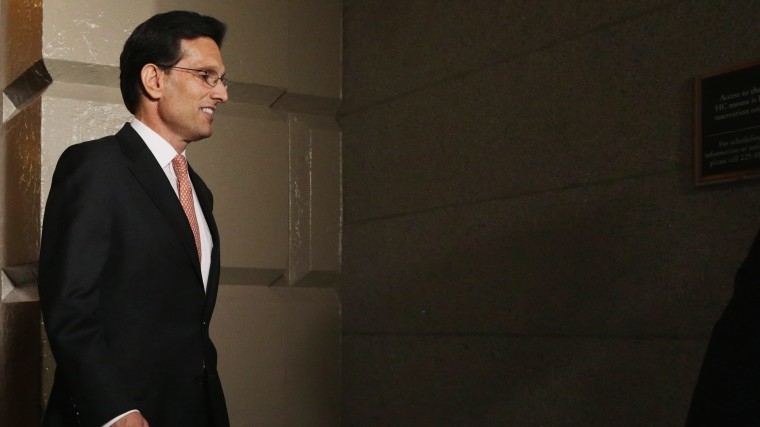For several years, in his capacity as House Majority Leader, Eric Cantor helped lead the charge on repealing "Obamacare." Put Republicans in charge, the Virginian told voters, and they'd dismantle the Affordable Care Act.
It was Cantor who helped bring ACA repeal bills to the House floor dozens of times. It was Cantor who helped spearhead "defund Obamacare" campaigns. And it was Cantor, we now know, who didn't genuinely believe his own nonsense.
The former GOP leader in the House talked to the Washingtonian's Elaina Plott and conceded that his Republican Party is in a tough spot -- parts of the conservative base expect the party to repeal the ACA, because that's what they were promised -- in part because of promises he and his colleagues made that they never intended to keep.
Asked if he feels partly responsible for their current predicament, Cantor is unequivocal. "Oh," he says, "100 percent."He goes further: "To give the impression that if Republicans were in control of the House and Senate, that we could do that when Obama was still in office...." His voice trails off and he shakes his head. "I never believed it."He says he wasn't the only one aware of the charade: "We sort of all got what was going on, that there was this disconnect in terms of communication, because no one wanted to take the time out in the general public to even think about 'Wait a minute -- that can't happen.' " But, he adds, "if you've got that anger working for you, you're gonna let it be."
In context, when Cantor says he and his party felt the need to "let it be," he means that Republicans fed a bunch of nonsense to their own voters, then exploited their anger for electoral gain with no intention of following through.
Cantor and his colleagues, in other words, played their base for fools -- because they thought it'd help them win some elections, which it did.
I didn't really expect the former House Majority Leader to admit that he helped oversee a cynical multi-year charade, but it's good to see Cantor coming clean now.
